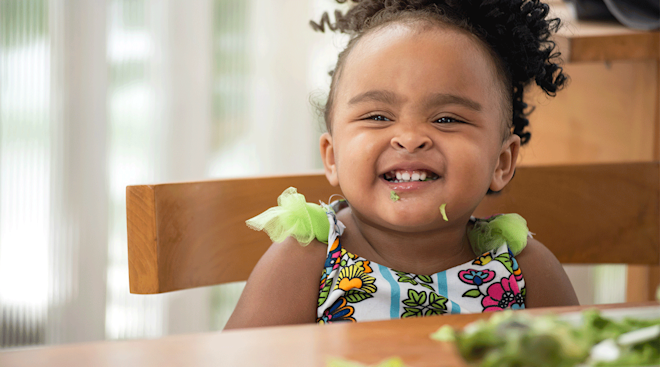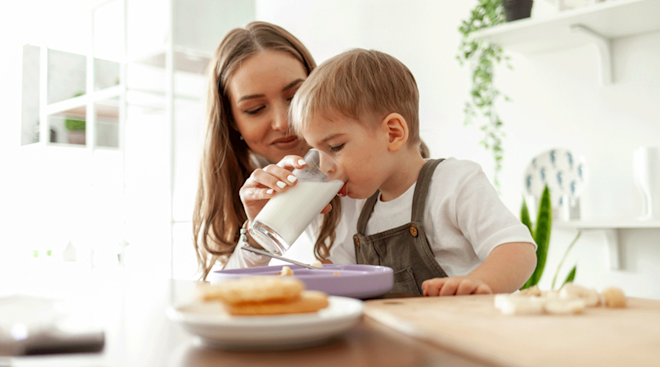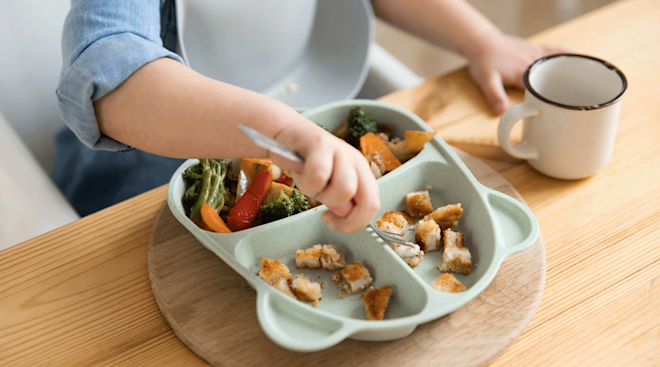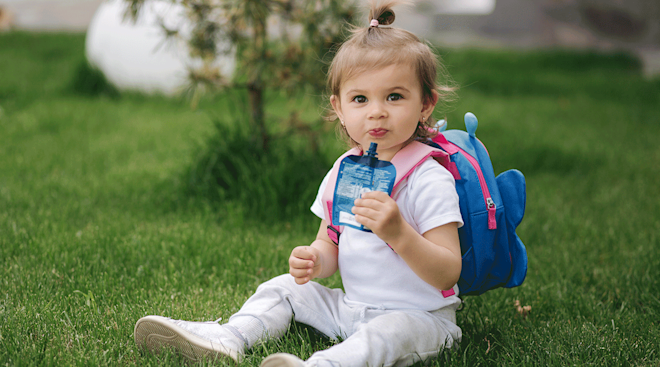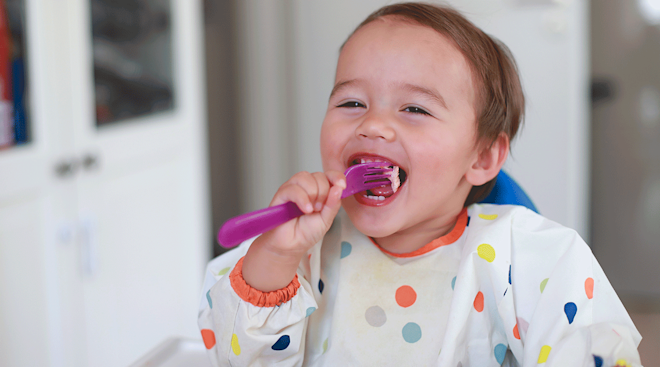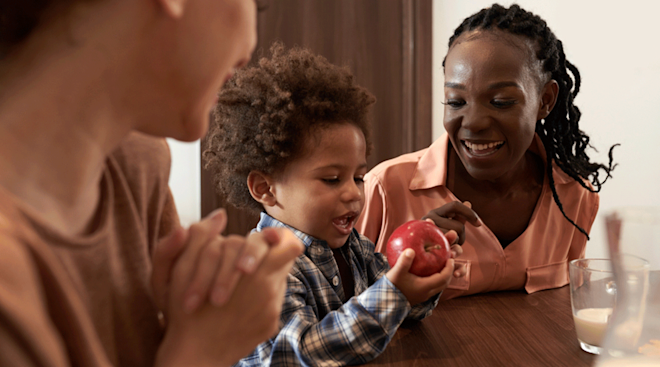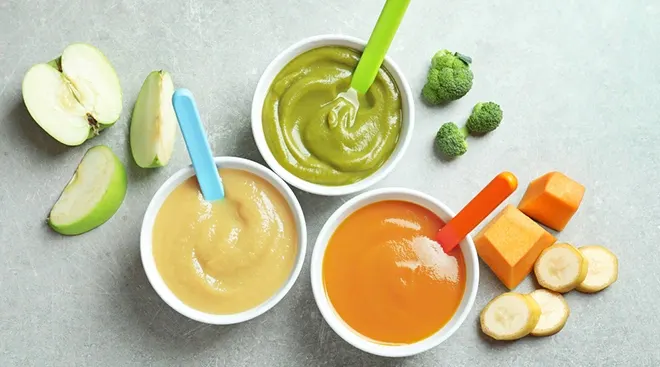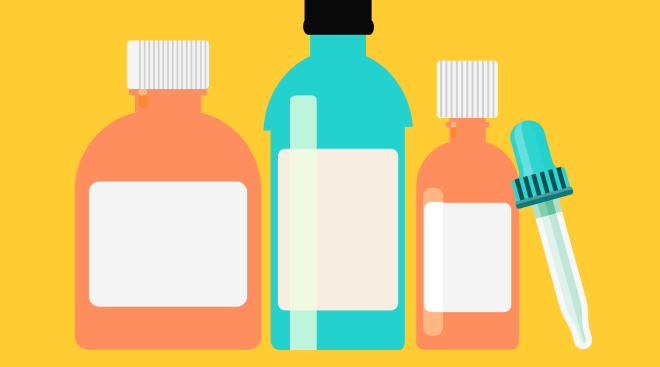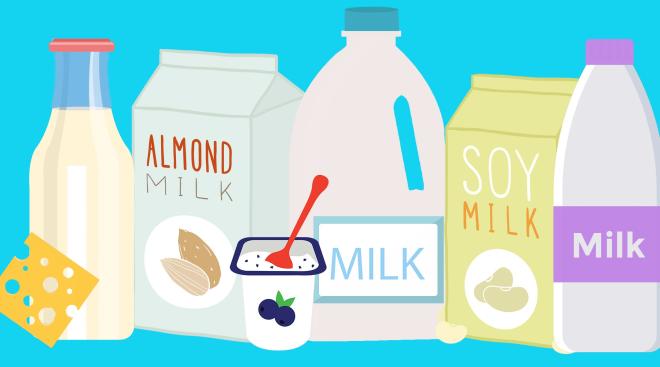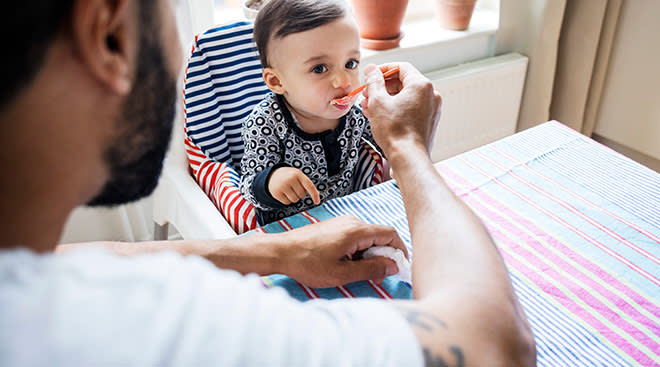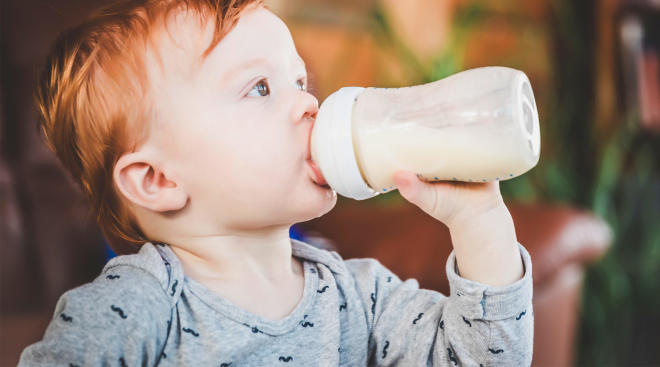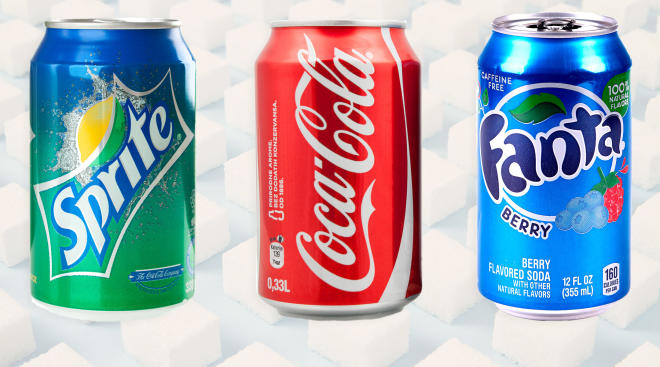Does Baby Need Vitamin D? Everything You Need to Know
After sharing my plans to exclusively breastfeed, I was surprised when our pediatrician told me that I needed to start supplementing my third child with oral Vitamin D drops. Long accustomed to the idea that breast milk provided all the nutrients my babies needed, I initially hesitated about this updated advice for newborn babies.
However, my fears quickly subsided when I learned that the American Academy of Pediatrics (AAP) recommends that all breastfed babies receive oral Vitamin D supplementation. You should always talk to your pediatrician about supplementation, but here is some additional information to help you decide if baby needs Vitamin D.
Lauren Davis, DO, founder of Latched Nourished Thriving, explains that Vitamin D is actually a hormone that plays an important role in many body functions, from building strong bones and teeth to supporting muscle growth and the immune system. According to the AAP, Vitamin D even plays a role in mental health.
Dr. Lauren Davis explains that the recommendation to supplement babies with Vitamin D stems from the fact that most breastfeeding parents don’t have adequate levels of Vitamin D themselves, so their breast milk won’t contain enough for their babies either. The primary sources of Vitamin D for adults are sunlight and certain foods, like egg yolks and animal livers. However, because diets and sunlight exposure vary widely, the Centers for Disease Control and Prevention (CDC) and the AAP recommend all infants take oral Vitamin D for their first year of life to ensure they are getting the right amount they need.
There are no known risks to taking the recommended level of Vitamin D, but taking too much Vitamin D can be dangerous for babies, says Cherylin Davis, MD, FAAP, at Elliston Pediatrics in New York City. Side effects like nausea, vomiting, poor feeding, constipation, decreased alertness and dehydration could occur with too-high levels of Vitamin D. However, the only way this would happen is with regular supplementation that significantly exceeds the amount you’d find in baby Vitamin D drops. Consult your pediatrician about how much to give your baby.
Dr. Cherylin Davis recommends following the AAP’s guidelines to give babies 400 IU (10 micrograms) of Vitamin D daily as soon as they are born. Babies who are exclusively breastfed should continue Vitamin D supplementation every day until they’re 1 year old. Formula-fed babies should also take Vitamin D unless they are drinking more than 32 ounces daily (that’s four 8-ounce bottles) of Vitamin D-fortified formula—in which case, they’re getting all they need from the formula and won’t need additional supplementation, she says. Typically, once a toddler switches to cow’s milk and is eating solid foods that contain Vitamin D, such as eggs and fortified cereals and yogurt, they will no longer need supplementation, according to the CDC.
Dr. Lauren Davis adds that it’s also an option for nursing parents to supplement their own diets with 6400 IU/day to provide their breastfed babies with enough Vitamin D through breast milk. But if you’re thinking about just getting more sun exposure to boost your Vitamin D levels, she cautions that while it can be helpful, sun exposure alone is most likely not enough—breastfeeding parents who aren’t taking a supplement should still supplement their babies with oral Vitamin D.
Vitamin D supplements are once-a-day liquid drops that can be administered via a dispenser or a small syringe or squirted directly into baby’s mouth, depending on the brand. Always check the specific instructions on the supplement to ensure you’re administering it correctly. Some nursing parents also place the Vitamin D drops directly on their nipple before baby latches on or directly into the breast milk. You can give baby Vitamin D at any time, day or night.
It’s safe to give Vitamin D with or near a feeding, but if possible, Dr. Cherylin Davis recommends giving the Vitamin D separately—that way, if baby doesn’t finish the bottle or spits up their feeding, you don’t have to worry or wonder if they received the full amount.
Here are some additional tips the doctors provided about choosing a Vitamin D supplement and administering it to babies:
- Ensure it’s easy to give. Look for a brand that offers an easy-to-administer complete serving. For instance, a 1 mL dropper will provide baby with the 400 IU recommended daily amount.
- Keep it clean. Choose supplements with simple, clean ingredients free of unnecessary additives, dyes or sugars.
- Check for testing. Look for brands that are third-party tested for purity and potency.
- Give it at the same time. To make it easier to remember, make it a part of your routine at the same time every day.
Wondering what happens if you forget to give baby their daily Vitamin D? Don’t fret, says Dr. Cherilyn Davis. “It’s okay if you occasionally forget [to give] Vitamin D, but do your best to be consistent with it,” she notes. “If you’re not sure if you gave it to your baby that day, it’s best to skip it, and resume the following day.”
Our Pick: Mommy’s Bliss Organic Vitamin D Drops
This supplement checks all the boxes, with one easy-to-administer drop that delivers a full daily 400 IU serving. Bonus: It’s USDA Certified Organic with only two ingredients. There’s no added sugar, alcohol, artificial flavors or colors, and it’s NSF Certified to meet standards for quality, safety and label claims via independent testing.
Buy Now: Mommy’s Bliss Baby Vitamin D Organic Drops, $13.49 for 100 daily servings
Please note: The Bump and the materials and information it contains are not intended to, and do not constitute, medical or other health advice or diagnosis and should not be used as such. You should always consult with a qualified physician or health professional about your specific circumstances.
Navigate forward to interact with the calendar and select a date. Press the question mark key to get the keyboard shortcuts for changing dates.


































